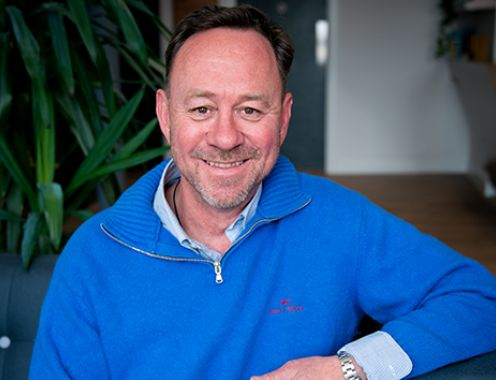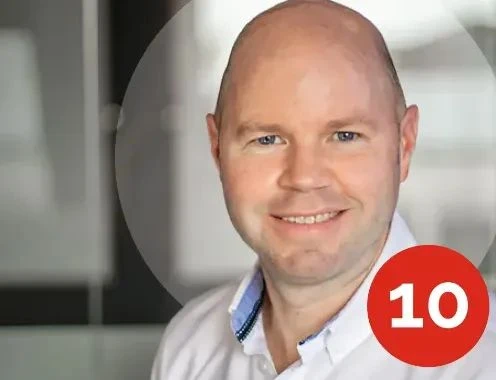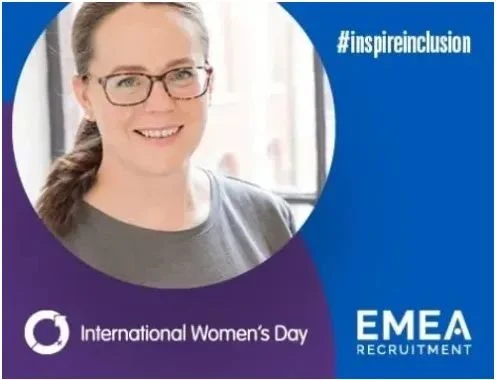- Jobs
- Candidates
- Candidates
- Candidate Services
- Candidate Testimonials
- Employers
- Employers
- Employer Services
- Client Testimonials
- Specialisms
- Executive Interviews
- Podcast
- News & Insights
- News & Insights
- News & Insights
- Events
- About
- Login / Register
Social
In-House D&I Training: Speaking to Clients about D&I

Following a recent Diversity & Inclusion training session for all EMEA Recruitment staff members regarding bias, we welcomed back our Ambassador, Valentina Coco, for more in-house D&I training.
In the previous session, Valentina focussed on bias, specifically, our own biases, and how these affect our lives.
In this follow-up session, we explored whether our clients are aware of internal biases and D&I, how to bring this topic up with them, and managing the most common pushbacks to D&I initiatives.
We explored how to introduce the subject in conversations with our external clients, and how to explain the benefits of a diverse workforce and inclusive culture for businesses.
Valentina explained the consequences of an employee or group of employees feeling excluded in the workplace.
We also discussed why diverse teams and inclusive environments foster higher performance, better decision-making and stronger growth.
Valentina acknowledged why it may not be easy to discuss and implement D&I practices, but explained that that’s why it works. If something is easy, it typically doesn’t challenge people or go to the next level.
Although differences can be hard to manage, they often spark creativity and innovation when you embrace them.
Due to the global focus on D&I, our Consultants are regularly having conversations with clients regarding building diverse workforces and creating an inclusive environment.
Some of these conversations can be difficult, so Valentina explored some common pushbacks and challenges that we may be faced with. As a group, we discussed why some clients might struggle with D&I and how to address any concerns or issues that may arise through such topics.
Valentina created an open environment for us to ask questions and raise discussion points throughout the training session. She will continue to deliver in-house D&I training on a regular basis for all EMEA Recruitment staff members.
Valentina Coco is an Ambassador of EMEA Recruitment, as well as the CEO and Founder of Coco Consulting & Coaching. She trains teams to develop an inclusive working environment.
More insights

Market Trends: Inside Shared Service Center Recruitment
With years of experience recruiting for global businesses all over Europe, our Shared Service Center recruitment specialists support organizations setting up operations in a new country or scaling their existing teams across the world.
Maciej Juszczyński and Lidia Zawistowska are Recruitment Consultants in our office in Wrocław, a major Shared Service Center hub in Poland.
“It’s a city that’s always alive,” says Maciej. As one of the biggest student and SSC cities in Poland, there are lots of opportunities for professional development, as well as many cultural and sporting events.
With good commuter links and proximity to Germany, Wrocław has “a real international vibe,” says Lidia, but isn’t as big as major cities such as Warsaw or London.
The importance of communication
Before joining EMEA Recruitment, both Maciej and Lidia worked in employment markets across Europe, including Romania, Croatia, Denmark, Spain, and the UK. Lidia’s knowledge of different communication styles helps her understand the needs of multi-cultural organizations.
“Even in a Shared Service Center, the personal part is still important,” she explains.
Maciej himself once worked on a recruitment process outsourcing basis for a large Shared Service Center in Poland, which taught him how these operations work. “Every position and company I’ve worked for have given me knowledge that I can use today,” he says.
An employers’ market
Over their careers, Maciej and Lidia have seen significant shifts in the employment market.
“Poland was always an employees’ market; candidates would be in three processes at one time, receive three offers, and employers had to fight for the best talent,” Maciej explains. “Now, it’s the opposite. Employers have become fussy again; they know that candidates need opportunities.”
Lidia has also seen companies putting more energy into finding the right people. At the same time, “people are more careful when changing jobs,” she says. For example, job seekers may want to research the financial situation of the business and ask questions around why they’re hiring.
Shared Service Center culture
Hiring into a Shared Service Center does present its own set of challenges.
Lidia explains: “When recruiting for a business’ head office, you need to understand the culture of the company to make a good match. But when recruiting for a Shared Service Center, you also need to understand the specific culture of the SSC.”
Despite often requiring large volumes of candidates at any one time, Shared Service Center recruitment also needs a personal touch to find the right fit. With multi-cultural stakeholders and various timezones to consider, Lidia brings her experience of working in global markets to find the ideal candidate profile.
“For example, I recruited for a company that was headquartered in the Netherlands, but I was searching for people to be based in the Polish office, who would be reporting to a Finance Director in the Nordics,” she explains. “I understand how Nordic people communicate and what’s most important to them.”
Maciej always tries to be himself when working with job seekers and employers, so that he can be open and manage their expectations. Lidia agrees: “When I’m transparent, candidates understand that we’re not like other agencies.”
Shared Services of the future
So, what does the future of the global Shared Services model look like?
“The focus is moving towards quality over cost,” observes Maciej. He references businesses like Heineken and Ecolab moving their operations to Krakow.
Lidia is curious as to how AI will change our way of working. For instance, we’re increasingly seeing automation in financial reporting, or the use of chatbots in employee services. With so much to learn and adapt to, she advises job seekers to “be ready for changes to their responsibilities”.
“New employees are increasingly responsible for introducing change, such as new tools,” she adds.
It’s a sentiment mirrored by Matt Foster, who leads our Shared Services recruitment team, when he recently reflected on his 20-year career in the SSC sector.
If you’re looking to learn more about trends in the Shared Service Center market, please get in touch with Matt, who will put you in touch with the right specialist: [email protected]

Insights from 20 Years in Shared Service Center Recruitment
Matt Foster, Associate Director, has specialized in Shared Service Center recruitment for over 20 years, with experience across Central Eastern Europe.
He explains what excites him about the market, how he expects Shared Service Centers to evolve in the future, and the unique experience of living in Budapest.
What inspired you to specialize in Shared Service Center recruitment?
While living and working in Budapest, I set up a new Shared Service Center team to serve multi-lingual needs. Whether it was a Finance or IT role, the multi-lingual aspect was more important than technical skills. We had lots of inbound calls; it was client driven, like most good specialisms.
People becoming what I call career SSC employees was a new phenomenon. They were moving from one Shared Service Center to the other, moving up the hierarchy.
It also satisfied my need of providing not just people, but imaginative, creative recruitment solutions. Shared Service Center recruitment isn’t a transactional occurrence; it’s not uncommon to face the challenge of sourcing a high volume of multi-lingual talent into a small, sometimes remote, location.
For example, I worked in tandem with clients to solve the problem of getting 30 languages into a small village in northeastern Hungary. Beyond having a dedicated team and conducing continuous research, we liaised with local universities and their Language departments to spread the word. They promoted the opportunities by emailing students and advertising on their physical and virtual job boards.
We also utilized references and referrals, for instance, if a student spoke Dutch, we’d ask them who else in the class speaks Dutch…
How has the global Shared Services market evolved over the past 20 years?
Unrecognizably. The Shared Service Center model began as a way to save money; putting your shared services into one center was the number one driver to save money. Looking for a low-cost location was a secondary by-product; you’d decided to create a Shared Service Center, so you chose a cheap country.
There is now a focus on digitization and service levels with Shared Service Centers – specifically, how to reduce the gap in service quality that customers may perceive. There’s also been growth in the type of functions that you can outsource to an SSC. 20 years ago, strategic functions would not have been considered. Now, you have people with 20 years’ experience working in SSCs rising to high levels in the organization. I’m sure senior SSC managers will be on the boards of FTSE companies in the future.
I’ve seen the whole lifecycle – SSCs are now relocating back to expensive countries to satisfy the ever-increasing desire for quality over cost. There’s a perceived service level relative to the cost of operating in each country. Think of it as tiers of quality versus cost. For example, India tends to be at the lower end, Central and Eastern Europe (CEE) in the middle, and Western countries at the top. There’s a perceived value of customer satisfaction closer to the top, which is the result of a higher educated workforce, and better alignment with the languages spoken in non-SSC departments and divisions.
Timezones play a role, too. It’s the reason why Vodaphone has a Shared Service Center in Newbury and not New Delhi. Companies have to find that balance.
How do you expect the Shared Service Center market to evolve in the future?
With the move towards working from home, the traditional model has had to evolve over the last few years. Maybe we’ll see virtual SSCs, or they might move to town centers in the future.
My personal experience is in Central Eastern Europe, but India and Central America are large markets. What they all have in common is that governments have actively pursued tax incentives for multi-national organizations to set up offices there.
We could see even less developed countries pitching themselves as players in the SSC market. With so many digital nomads disrupting the traditional way of working, maybe island nations, such as in the Pacific Islands, could be on the rise.
I’m also looking forward to how SSCs will adopt AI in beneficial way.
Why did you move to Budapest specifically?
I decided my career was going to involve international business a long time ago.
I was the Country Manager of an online job board in Prague. The CEO asked if I wanted to do the same in Hungary – I didn’t even know where it was!
My degree was in International Business & French, so I was excited to use my languages and learn Hungarian. Hungary joined the EU while I was there, but it still felt like the wild east.
It was great to network with other expats, and had an emerging economy and market. We could introduce proven western techniques very quickly and work across the rest of Eastern Europe from there.
After a year, I was given ten more countries to look after. Recruiting in Central Eastern Europe gave me a lot more than a very stale UK market and economy.
What did you enjoy about living in Budapest?
I networked with like-minded people and met CEOs of FTSE 100 organizations, as well as being invited to Queen Elizabeth II’s birthday party.
I learned a lot and challenged myself. I was exposed to different cultures and languages, so I made loads of cultural mistakes; I declined vodka at breakfast with a CEO in Tallinn and the meeting ended suddenly…
I made mini mistakes daily, but these resulted in real cultural improvements in my professional working abilities.
What are you excited about in the world of SSC recruitment?
Everything. Mostly our position; we get seats at the top table in organizations looking at new countries to set up in.
We make a big difference to people’s lives. People I placed 20 years ago are now in senior positions in Shared Service Centers, so it’s incredibly satisfying. The depth of our connections across this sector is of huge value to our clients and candidates.
If you’re setting up a new Shared Service Center or are expanding your SSC team, Matt can support you with strategic talent acquisition processes and an active database around the world.
Get in touch with him today: [email protected]

Celebrating John Byrne's 10-Year Work Anniversary: A Decade in Swiss Recruitment
John Byrne joined EMEA Recruitment in 2015 to build our Procurement & Supply Chain and Operations specialisms within our Swiss recruitment team.
Ten years later, John is now the Country Director for Switzerland. He shares his insights on the evolution of the Swiss market and his career journey.
How has the Swiss market changed in ten years?
Over the last decade, the Swiss market has undergone a significant transformation. More than ten years ago, our target client was predominantly large multi-national corporations with much larger offices, whose recruitment needs covered a greater diversity of seniority levels.
However, as businesses evolved, so too did the demand for more tailored hiring solutions, allowing us to add real value for both clients and candidates with niche needs.
Between 2016 and 2020, Brexit and continued globalization created uncertainty across European markets, prompting companies to rethink their structures and operational strategies.
Then came the COVID-19 pandemic, which created a continued crisis management approach for most businesses, which in turn accelerated those changes dramatically. At the same time, the rise of technology and remote work began reshaping how businesses functioned, paving the way for a more flexible and digital approach.
Between 2020 and 2023, Switzerland experienced a particularly strong and buoyant job market, as both existing companies and new entrants sought to establish themselves.
During the pandemic and subsequent lockdowns, we saw a stronger reinforcement of the importance of trusted business relationships, as a contactless work environment placed greater emphasis on agility and a people-first approach. Our longevity in the market definitely paid off and allowed us to maintain high service standards in unprecedented times.
More recently, new challenges have emerged. Elements such as BEPS Pillar 2 and the 15% corporate tax rate have posed difficulties, particularly for cantons with historically lower tax rates. Additionally, the UBS-Credit Suisse situation could have been a major disruption, but Switzerland’s swift response ensured stability before markets reopened.
All these hurdles continue to highlight the innovative, agile nature of the Swiss market, which makes it so enjoyable to be part of.
Where do you see the Swiss market heading in the next ten years?
I believe organizations continue to choose Switzerland to expand their regional or global footprint and strengthen operations. Switzerland offers many benefits to companies of all sizes, including political and financial stability, a multi-national talent pool/skill base, and neutrality in key strategic decision-making exercises, which maintain its leading position.
I also think Technology and Transformation will be a key investment for all Swiss organizations, as many have been relatively slow in their adoption. We have seen an uptick in demand for recruitment needs in this sector, hence our investment in this area 18 months or so ago.
What is your favourite thing about working in Switzerland?
It’s truly multi-national.
Also, the country’s efficiency - coming from the UK, I never thought having reliable trains was possible!
Having family here, too - a brother, sister-in-law, and three nephews. It’s great being able to see them and go skiing when possible.
Additionally, working in Switzerland for ten years has allowed me to build a large network with strong relationships across Finance & Accountancy, Procurement & Supply Chain, Operations, and Human Resources, that extend beyond work.
What’s your proudest achievement while working at EMEA Recruitment?
Finally getting Procurement & Supply Chain off the ground. The discipline didn’t exist at EMEA Recruitment when I joined. Getting the first hires were hard, but key. The hire of Neil Cope allowed us to build the foundation for a solid team, which has gone from strength to strength.
We now partner with CSCMP Switzerland and became an official sponsor in 2023, while we’ve supported CIPS on regular events for over nine years. They view us as a trusted partner, and we have built a really tight network of like-minded professionals.
I’m also proud of having the opportunity to progress and become Swiss Country Director in July 2022. I have always achieved the high-flyers incentives, while maintaining high service offerings and honest, consultative feedback for all.
What advice would you give to those considering a career in recruitment?
Be a good listener. Good listening skills, resilience, and hard work are the three most important success factors. Don’t give up when it gets hard.
What you need is an agile sales mindset, but not at the expense of those you work with. Treat people how you would want to be treated.
What are you most looking forward to?
Professionally, supporting our Technology & Transformation division and helping the continued growth across the whole organization.
Personally, watching my son grow and develop - and being there to help him along the way.
Richard Bailey, Managing Director of EMEA Recruitment, reflects on John’s anniversary:
“John has become a fantastic Ambassador for EMEA over the past ten years and it’s with great personal and professional pride that I’ve watched John go from strength-to-strength as the EMEA team have expanded their network across Switzerland.
“The job markets have changed, COVID changed everything, but the foundations John has helped EMEA to build has allowed our business to grow, for which we are very grateful. From Consultant, to Manager, to Director, to Country Director, to Board Member… here is to another ten years!”
You can learn more about John’s specialist experience, as well as how to get in touch with him about your own recruitment needs, through his profile: emearecruitment.com/our-team-members/john-byrne/68

Master Finance Recruitment: A Guide for Candidates and Hiring Managers
As a candidate seeking development through a new assignment, it is helpful to streamline your job search and establish your professional desires and requirements upfront.
Instead of diving straight into evaluating potential roles based on location, salary, and company type, we suggest candidates first reflect on their current standpoint: Are you seeking a new challenge or aiming for a lateral move?
Clarifying your motivation for change is crucial in achieving your objectives, especially when seeking relevant opportunities. Vaguely defined motivations can result in a bad career move, forcing you to re-enter the job market again when not in the right position, and this can be to the detriment of an otherwise strong CV.
EMEA Recruitment can add value to your job search as our consultants and research team are Finance recruitment experts and we can offer you highly tailored career advice on how to achieve your goals. To discuss how we can support you in further detail, please do get in touch: [email protected]
Our Advice for Aspiring Hiring Managers:
A streamlined hiring process helps ensure you identify candidates with the right cultural fit and eliminate wasted time to the greatest possible extent.
Firstly, branch out to your network to understand the profiles currently available in the market and any prevalent skills shortages. Modifications to the role resulting from market trends may have wider implications, such as who needs to meet this prospective individual before deciding whether to offer them the role.
Two or three interviews is considered the ideal range, as an overly drawn-out hiring process with too many stakeholders can create delays and subsequently a negative candidate experience, particularly in high-demand role categories.
Combining hard and soft skill assessments can add value if used correctly. In Finance, this might mean a test to accurately assess proficiency with certain software. Always align with the candidate on a deadline for completion; this not only ensures the process remains on track, but gives a gauge on how ‘bought-in’ they are to the opportunity.
At EMEA, our people-first approach makes us the ideal strategic business partner across Finance, Human Resources, and Procurement and Supply Chain. By listening, collaborating and championing your business we’re able to overcome even the most challenging of search scenarios. To learn more, please contact: [email protected]

Ghosting in Recruitment: Gen Z’s Impact on Communication
A recent survey by the job search site Indeed, involving 1,500 companies and an equal number of employees, unveiled surprising statistics about "ghosting".
Ghosting: The practice of suddenly ending all communication without warning or explanation and avoiding further attempts to communicate.
The survey revealed that 75% of workers have disregarded communication from potential employers over the past year, with Gen Z candidates at the forefront. A staggering 93% of these younger employees have missed interviews, and 87% have accepted job offers only to disappear on what should have been their first day.
This trend highlights a deeper issue within the recruitment sector - a broad dissatisfaction among job seekers, especially younger ones, with the level of communication from potential employers.
The findings from Indeed suggest that for many Gen Zers, ghosting is a means to assert control over their career paths, reacting to the frequent lack of feedback after submitting job applications or participating in interviews.
Against this backdrop, our commitment to a people-first recruitment strategy is not just a principle but a proactive solution to a significant industry problem. By ensuring clear and consistent communication with candidates, we address one of their major grievances, thereby promoting greater engagement and respect in the hiring process. This strategy meets the expectations of modern job seekers, who demand openness and dialogue.
The ghosting phenomenon, as the survey shows, is a reaction against traditional, often impersonal recruitment methods, highlighting the need to cultivate authentic relationships with candidates. By striving to respond to every candidate, whether after an application, an interview, or a job offer, employers can not only improve their image as thoughtful and dependable recruiters but also contribute to a more respectful and efficient hiring environment.
In a time when ghosting has become a widespread reaction to dissatisfaction, our people-first philosophy is not just a policy - it's a commitment to transform the recruitment experience.
If you are a candidate seeking a more respectful and engaging job search experience or a company eager to transform its recruitment approach into a people-first strategy, contact our team for a confidential discussion: [email protected]

As champions of workplace ED&I, we’re proud to #InspireInclusion
To mark this year’s IWD, we asked a handful of colleagues to share what it is about our workplace and culture that makes them feel seen, supported and valued. It’s fair to say that we were delighted by the responses, including this heartfelt testimonial from our Swiss HR division Manager Keely Straw.
"Joining EMEA Recruitment was a pivotal moment in my professional journey, but shortly after settling into my role, life took an unexpected turn. A diagnosis of chronic illness cast a shadow over my future, introducing uncertainty and challenges I had never anticipated. The prospect of disclosing this deeply personal matter to my manager, especially one of a different gender, filled me with apprehension. Yet, my fears were unfounded.
EMEA Recruitment's culture provided to be a sanctuary where every voice is heard and every individual is valued. When I finally mustered the courage to confide in my manager, I was not met with judgment or discomfort, but with empathy and unwavering support. The genuine concern and understanding demonstrated by my manager and the broader team created a safe space where I could openly discuss my health concerns without fear of stigma or repercussion.
In navigating the complexities of my illness, EMEA Recruitment extended a lifeline, providing me with flexibility to adapt my work schedule to accommodate my health needs. This invaluable support not only alleviated the burden of the work-related stress but also reaffirmed my sense of worth within the organisation. Knowing that my well-being was priortisied allowed me to focus on managing my condition without the added pressure of work-related worries.
Even on the most challenging days, I am reminded of the profound impact of EMEA Recruitment's unwavering support. Their commitment to fostering an inclusive and supportive environment has not only eased the burden of my illness but has also instilled in me a sense of gratitude and loyalty. As I continue to navigate the ebb and flow of my health journey, I am filled with optimism for the future, knowing that I am part of a community where I am truly valued and supported."
Today and everyday we strive to bring the values encapsulated in our ED&I policy to life, providing an equitable, flexible and supportive environment.
If you are interested in joining the team, reach out to Laura Henderson or find out more at: https://www.emearecruitment.com/pages/work-for-us
Add New Saved Search
Add Blog Alert
Reset Password


Before you continue to the site
Our website uses cookies, including cookies from our partners, to ensure proper functioning and performance, improve your user experience and analyze traffic. Consult the cookies policy.
You can make your choice below and modify them at any time by going to 'Cookies' in the website footer. Your choices are kept for 6 months.
Customize your cookie choices
Below is a list of cookies on our website. You can accept or refuse the use of cookies by purpose (which implies the acceptance or rejection of all cookies concerned by this purpose). Consult the cookies policy.




You can also use your social account to sign in. First you need to:
Accept Terms & Conditions And Privacy Policy